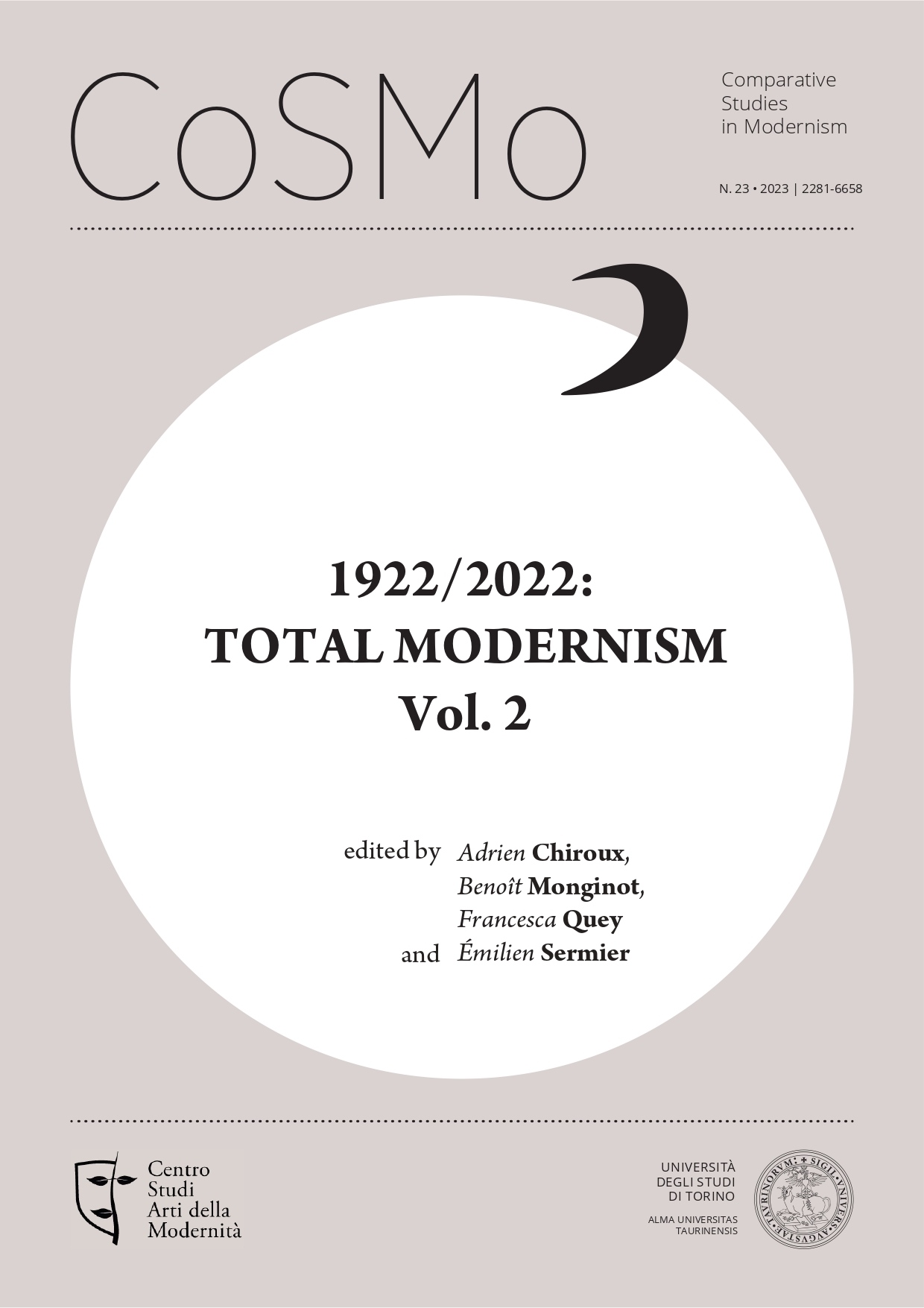Le manifestazioni sensibili dell’uomo moderno
Dall’estetica metropolitana al cinema come riscatto: Simmel, Balázs, Kracauer
DOI:
https://doi.org/10.13135/2281-6658/7289Parole chiave:
Cinema, Visual culture, Surface, Urbanization, Ornament, Metropolitan aestheticsAbstract
Gli anni Venti sono segnati da profonde trasformazioni dell’orizzonte sensibile, sia per il rapido sviluppo della tecnica cinematografica, sia per il limite in cui incorrono le arti figurative e letterarie tradizionali nel rappresentare l’esperienza della modernità, con le sue contraddizioni interne e le trasformazioni sociopolitiche in atto, a seguito del primo conflitto mondiale. Sono gli anni, infatti, in cui il teorico del cinema Béla Balázs decreta l’affermazione e l’autonomia di un nuovo tipo di linguaggio, quello della visuelle Kultur, non più soggiogato al primato del logos ma imperniato sulla dimensione visiva e iconica. La cultura visuale, da quel momento, legittima a pieno titolo la capacità dei media visivi di trasformare la nostra percezione della realtà e, in particolare, la facoltà del cinema di contribuire a nuove forme della nostra esperienza del mondo, forme complesse di relazioni reciproche tra reale e immaginario, frammentate e “totali” al contempo. Come osserva Siegfried Kracauer, il cinema diviene voce – o eco – dell’inconscio collettivo della società di massa, specialmente in Germania, dove sorgono, secondo Georg Simmel, sia le metropoli dell’uomo moderno, sia le forme drammatiche di un espressionismo in cui acquisiscono centralità le percezioni della soggettività e la forza del simbolo. Fioriscono gli studi sulle manifestazioni del visibile e sugli stili, sulla forma, sulle «analisi delle manifestazioni superficiali di un’epoca», nei quali la tensione tra uniformità e differenziazione diventa un nodo cruciale per la comprensione del magmatico e disorientante ribollire di contraddizioni del Modernismo. L’uomo moderno delle metropoli, come individuato da Simmel già nei primi anni del Novecento, è un nuovo tipo umano che abita i grandi agglomerati urbani, in cui i processi di frammentazione del presente e di individualizzazione nelle relazioni sociali sono una reazione alla funzionalizzazione determinata dall’economia monetaria occidentale ormai affermatasi. In questo contesto, caotico e razionale, di appiattimento delle relazioni come tecnica di preservazione del sé, entra in gioco una necessità di differenziazione della personalità e di esaltazione delle qualità personali come meccanismo di liberazione e di socializzazione. Ed è per assolvere a questo compito che le manifestazioni esteriori e l’estremizzazione delle apparenze iniziano ad assumere quel portato che Kracauer ricondurrà, in seguito, a manifestazioni superficiali (di superficie) di un inconscio collettivo più profondo, di cui il cinema è in grado, in quegli anni, di farsi portavoce, rendendo conto dei desideri e delle pulsioni che scaturiscono dalla massa e influenzandoli al contempo, in una relazione dialettica di reciprocità. Il presente intervento mira ad indagare alcuni nessi tra la messa in scena inconscia delle manifestazioni esteriori dell’uomo moderno e la funzione del cinema degli anni Venti nell’istituzione delle nuove modalità percettive che porteranno al consolidamento della cultura visuale.
Downloads
##submission.downloads##
Pubblicato
Fascicolo
Sezione
Licenza
Gli autori mantengono i diritti sulla loro opera e cedono alla rivista il diritto di prima pubblicazione dell'opera, contemporaneamente licenziata sotto una Licenza Creative Commons - Attribuzione che permette ad altri di condividere l'opera indicando la paternità intellettuale e la prima pubblicazione su questa rivista.






